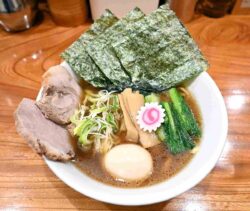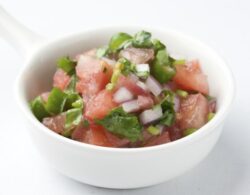Haruka / Taste of Edo Period in Nihombashi; Bowl of Passion Served by Former Judoka
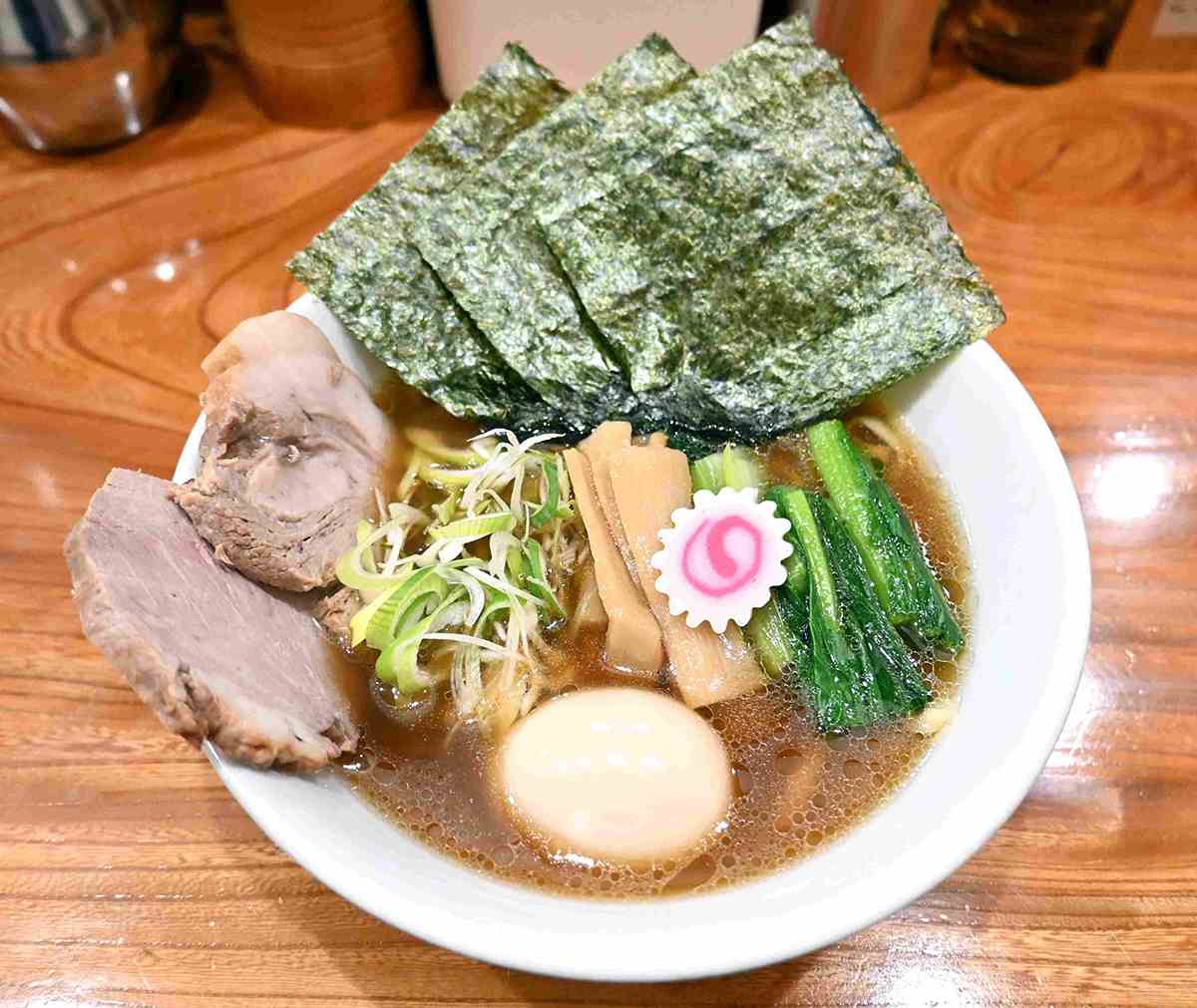
Tokusen Haruka ramen, infused with the flavors of the Edo period (1,290 yen)
18:51 JST, May 15, 2024
Nihombashi is an area of central Tokyo where you can feel the traditional atmosphere of Edo period Japan. Ramen shop Haruka, which relocated from the nearby Kanda district in December 2021 to near the COREDO Muromachi commercial complex, is characterized by ramen with vegetables that give an Edo feel, together with homemade noodles and a chicken-based shoyu (soy sauce) broth.
The soft and light natto ramen is also very popular. Noritsugu Taguchi, who is in charge of the shop, has a unique background, having pursued judo in junior high school, high school and in the business world.
-
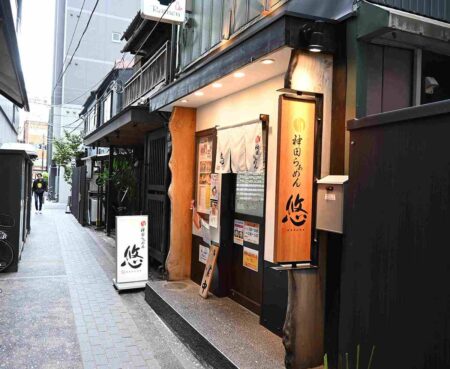
Exterior view of Haruka
-
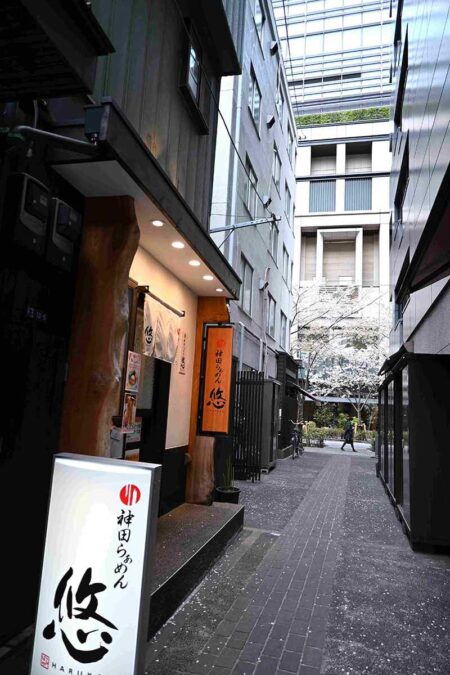
COREDO Muromachi 3 is seen at the end of the alleyway.
-
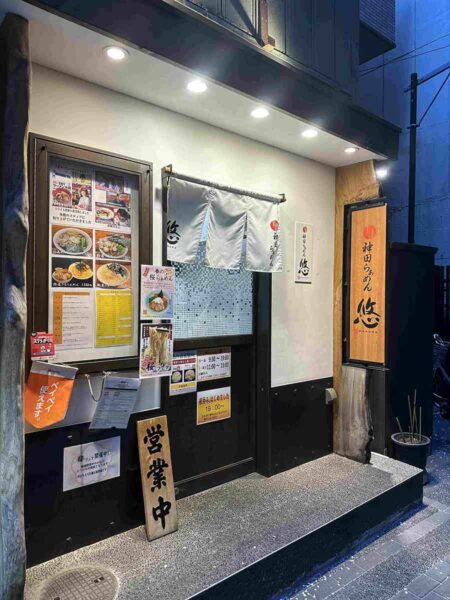
The shop is located along a narrow alleyway.
-
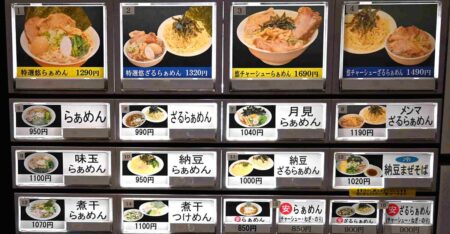
The shop’s meal ticket machine
-
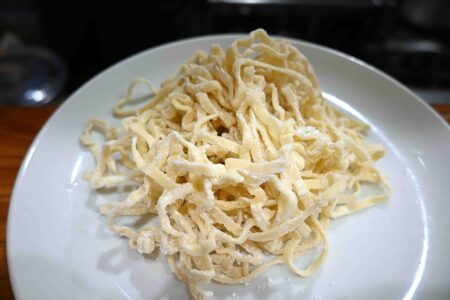
Homemade flat, curly noodles
-
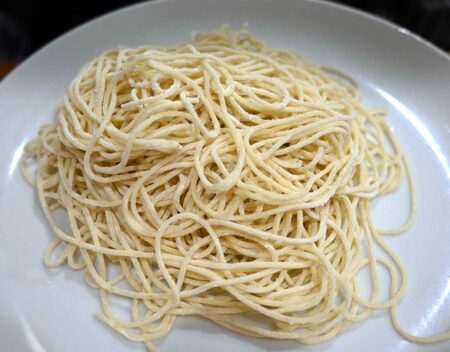
Homemade thin noodles
-
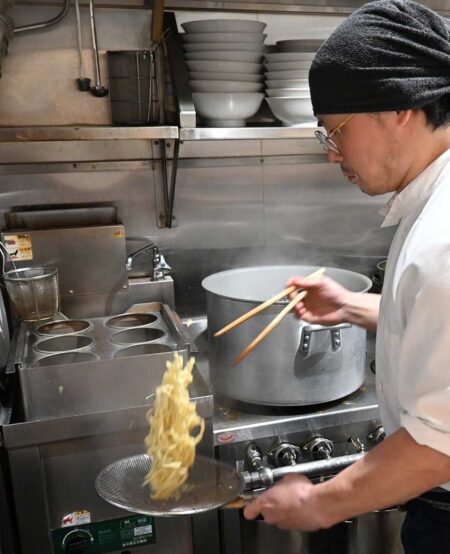
Taguchi tosses noodles to remove the moisture.
When I visited the shop amidst falling cherry blossoms, I was intrigued to see that they were offering a limited-edition Sakura ramen using thin noodles kneaded with cherry blossom leaves, but I instead bought a meal ticket for the recommended Tokusen (extra toppings) Haruka ramen (1,290 yen).
“Would you like flat or thin noodles?” asked 44-year-old Taguchi, who is not tall but has a sturdy physique. His voice was also strong. As a thick noodle lover, I asked for flat noodles.
He explained that the soup is a combination of clear chicken broth (chintan) and kaeshi sauce blended with thick soy sauce, a soy sauce mash from Yugeta Shoyu in Saitama Prefecture and several seasonings. Chicken oil extracted from Hakata Jidori chicken is also added. Just hearing that made the ramen sound even more delicious. The finished ramen was a luxurious looking dish, particularly because of the extra toppings.
The soup is light but rich in umami, with a wonderful soy sauce flavor. The homemade flat curly noodles, which are made by specialized staff in a nearby building, has a high water content and glutinous texture. The noodles remind me of the smooth and easy to eat Kitakata ramen.
-
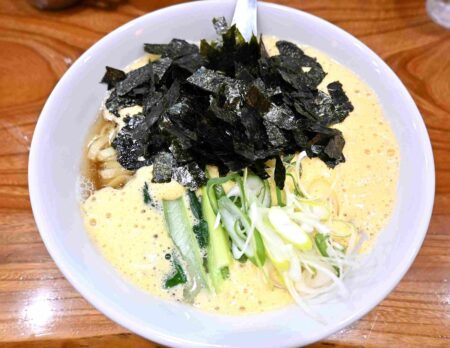
Natto ramen
-
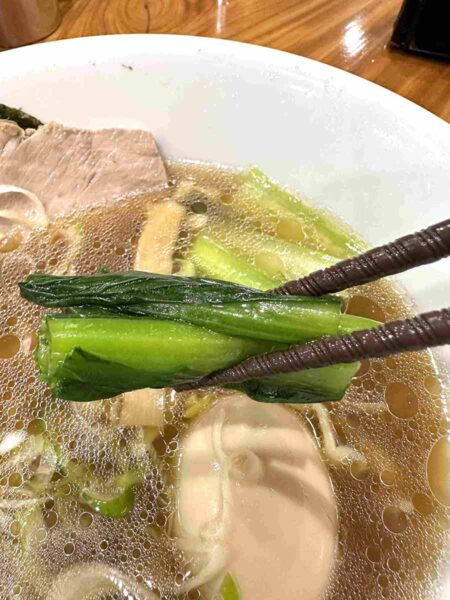
Edona vegetables
-
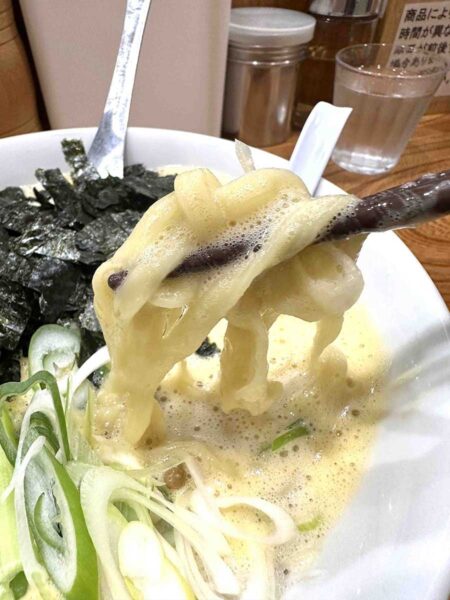
A fluffy mix of natto goes well with thick noodles.
-
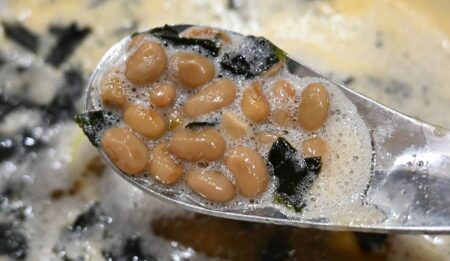
Natto is scooped up with a slotted renge spoon.
-
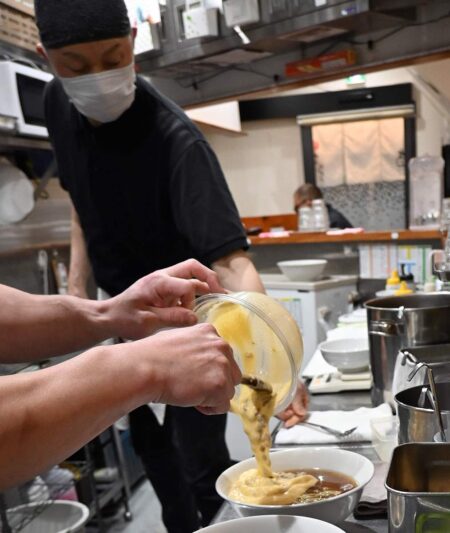
Natto mixed with egg is served on top of shoyu ramen
Among the various toppings, the most distinctive are the Senju spring onions and Edona green vegetables. Senju spring onions, about which Taguchi says, “I just chop them up and put them on top, but they don’t taste pungent, they taste sweet,” are an Edo vegetable that were traditionally grown in Senju, near Asakusa in Tokyo. Edona is an improved strain of komatsuna greens, with less bitterness and astringency. Both are crispy and add a fresh flavour to this ramen. Other toppings include two large, thick slices of pork shoulder chashu, an ajitama seasoned egg, three large sheets of nori, menma bamboo shoots and naruto sliced fish cake. The special toppings ramen was substantial and satisfying enough to fill me up.
-
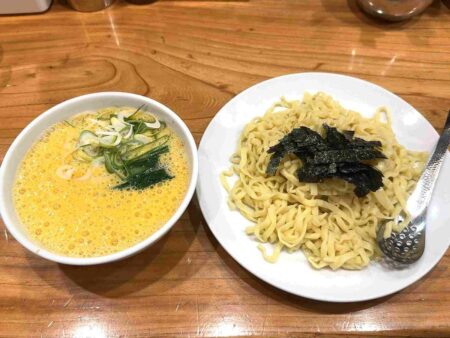
Tsukemen-style natto zaru ramen
-
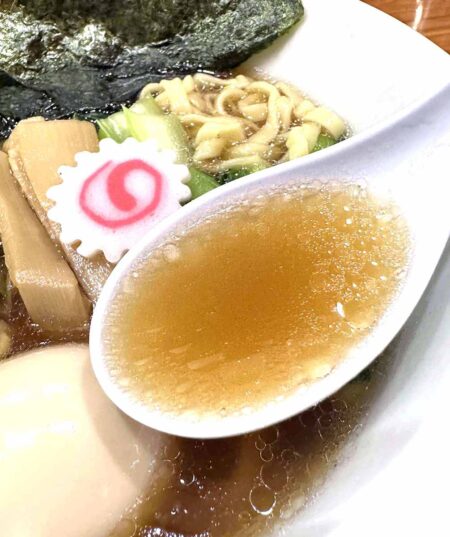
Clear broth with a deep umami flavor
-
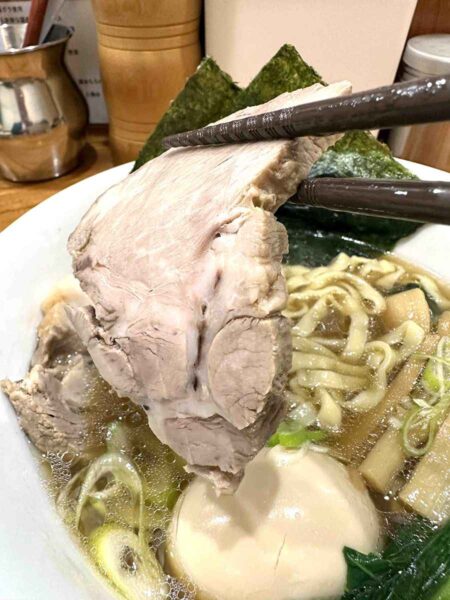
A thick slice of pork shoulder chashu
-
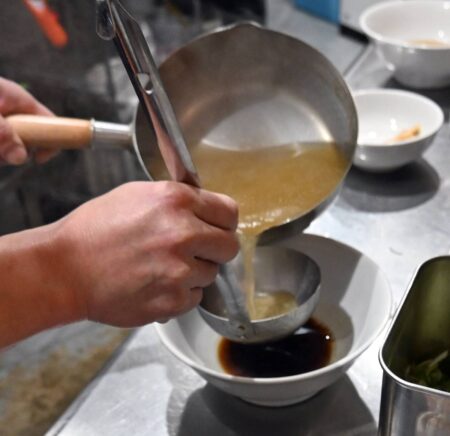
Taguchi pours the chicken-based soy sauce broth into a bowl with kaeshi sauce.
One of the menu items, the natto ramen (950 yen), a simple bowl with egg and natto beaten until fluffy and served over shoyu ramen, is also popular enough to have fans who order it exclusively. On my first visit to the shop, I had the tsukemen-style “natto zaru ramen” (1,000 yen), which was very tasty and a bit spicy due to the presence of vinegar and shichimi spice in the dipping broth. According to Taguchi, the cold “natto mazesoba” is also a popular menu item and is served all year round. He says you can enjoy changing the flavor with the homemade chili oil that comes along with it.
From judoka to the ramen world
-
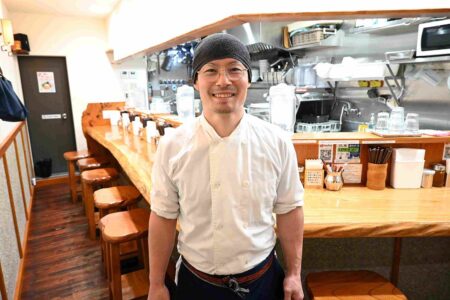
Noritsugu Taguchi
-
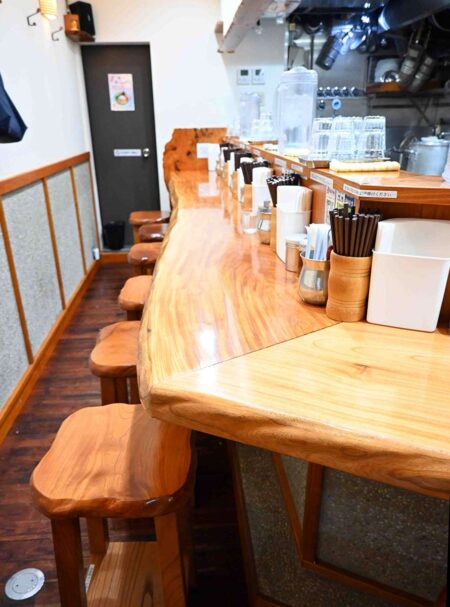
A counter made of zelkova wood
-
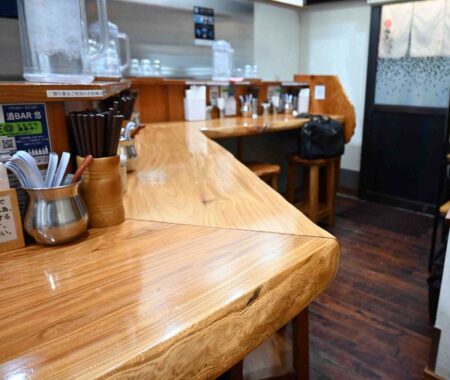
Counter seats near the entrance of the shop
-
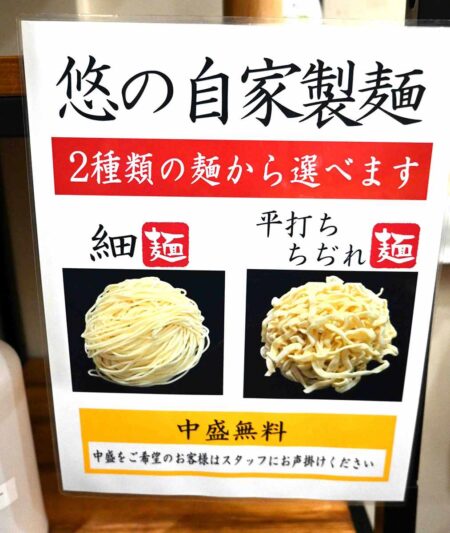
The two types of handmade noodles available at the shop.
Originally from Urawa, now part of Saitama City, Taguchi devoted himself to judo in junior and senior high school, and after graduating from high school he joined Nippon Steel Corporation. He continued judo in the business world and competed in competitions, including the All-Japan Business Competition and the National Athletic Meet, in the 60-kg class, achieving good results. He quit the company upon retirement from judo in his mid-20s and started working at a ramen restaurant near his parents’ home, as he wanted to enter the culinary world, which he had long been interested in.
Later, through the good auspices of others, he trained under the founder of the famous ramen shop Manrai in Shinjuku, and later also worked at Horiuchi, which had become independent from Manrai.
Haruka is corporate-owned and Taguchi, who was put in charge of the shop, opened the shop in Kanda in 2015. After a period of closure due to COVID-19, the building that housed the Kanda shop was due to be demolished and the shop moved to its current location in Nihombashi.
“Before I realized it, I’ve been in the ramen business for a long time,” Taguchi said. He is no longer involved in judo. He is determined to continue on the path of ramen.
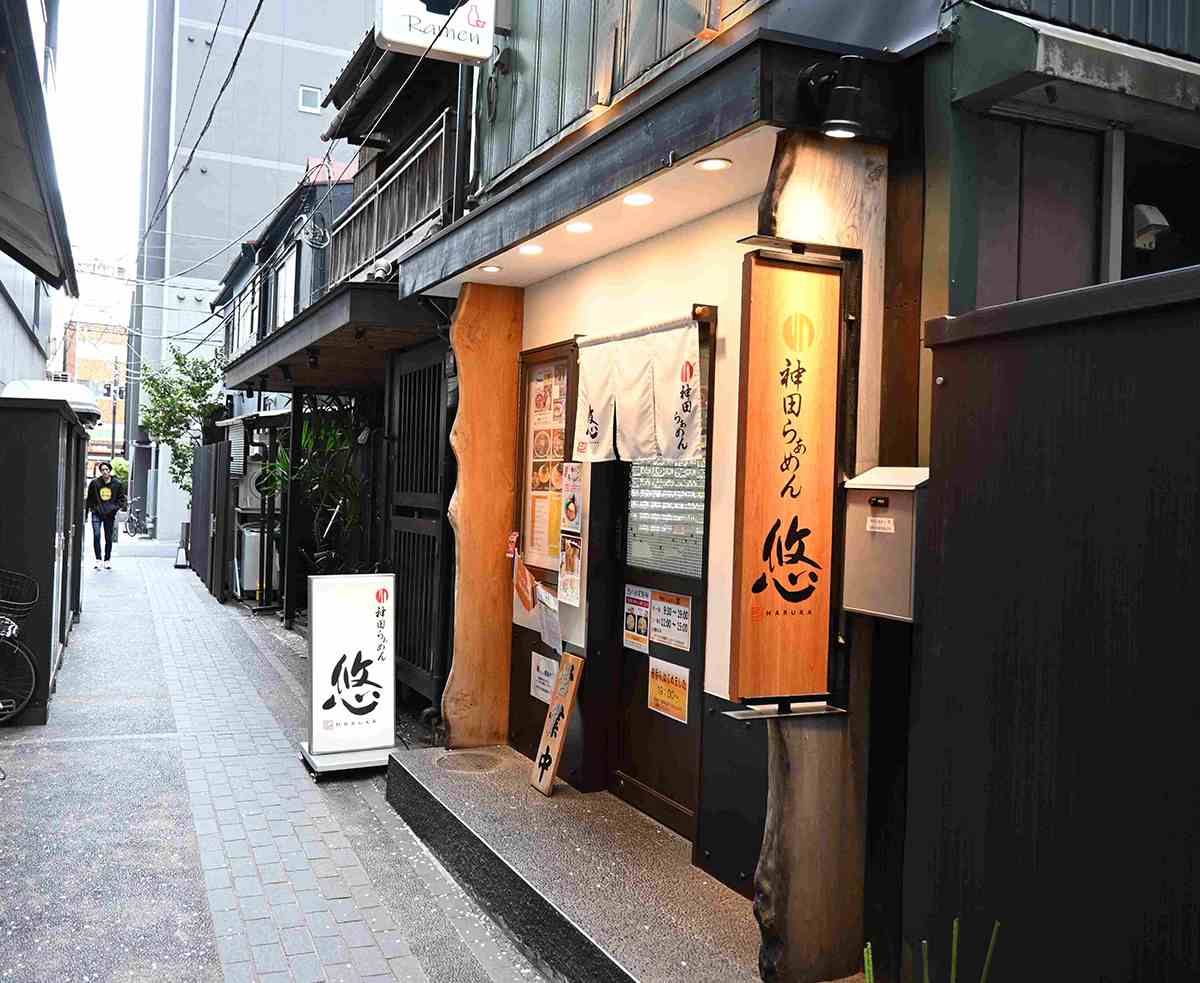
Haruka
1-13-5 Nihombashi Muromachi, Chuo Ward, Tokyo. Open from 9.30 a.m. to 7 p.m. on weekdays and from 11 a.m. to 3 p.m. on Saturdays and public holidays. Closed on Sundays. Closed once or twice a month on Saturdays. After closing on weekdays, a bar is run by the same company on the premises.
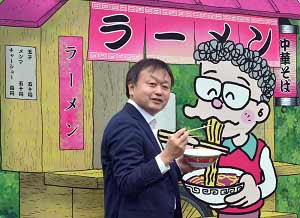
Futoshi Mori, Japan News Senior Writer
Food is a passion. It’s a serious battle for both the cook and the diner. There are many ramen restaurants in Japan that have a tremendous passion for ramen and I’d like to introduce to you some of these passionate establishments, making the best of my experience of enjoying cuisine from both Japan and around the world.
Japanese version
「神田らぁめん悠」の納豆ラーメン、元柔道家が作るふわふわの食感
"JN Specialities" POPULAR ARTICLE
JN ACCESS RANKING

